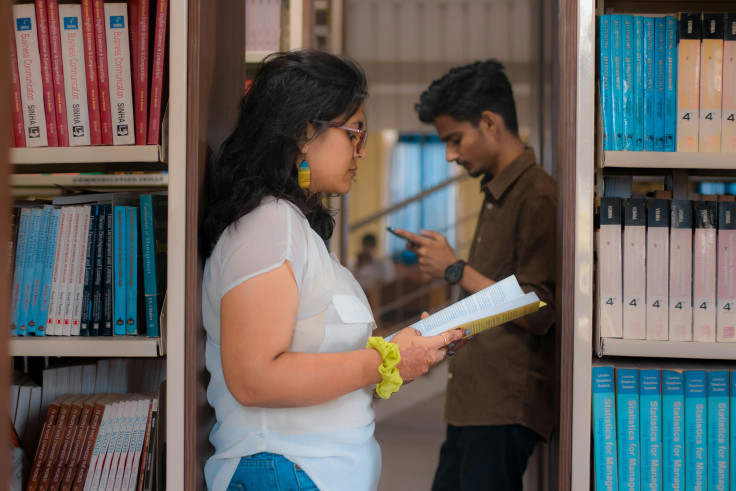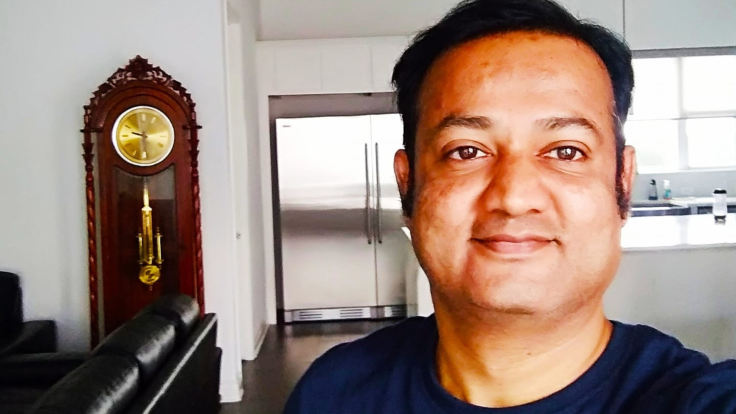Are Indians Still Safe in the UK? US Beheading and Oldbury Rape Case Add to Growing Fears About Diaspora Safety
Data from the year ending March 2024 reveals troubling patterns for race-based hatred in the UK

The shocking news of a 50-year-old Indian man being beheaded in Dallas, Texas, followed closely by reports of an alleged racially motivated rape of a young Sikh woman in Oldbury, West Midlands, has reignited a pressing question: Are Indians still safe in the UK?
For many in the diaspora, these brutal incidents, though oceans apart, have collided in public consciousness to paint a picture of vulnerability, fear, and rising hostility. While the UK continue to be one of the top choices for Indian immigrants, the recent racial tensions in the nation are worrisome.
A Horror Abroad, Anxieties at Home
In early September, Chandra Mouli Nagamallaiah, a motel manager originally from Karnataka, India, was attacked with a machete by his co-worker in Dallas after an argument over a broken washing machine. The suspect, a Cuban national with a violent criminal history, decapitated him in front of his wife and teenage son. Police said he then carried the victim's severed head across the parking lot before discarding it in a dumpster.

In a hyper-connected media landscape, geography hardly matters. Hence, the victim's shared identity became the link, and the fear felt in Dallas was felt on the other side of the world as well.
That fear intensified when, just days later, a British Sikh woman in her twenties reported being raped in Oldbury, West Midlands on Tuesday. According to West Midlands Police, the perpetrators hurled racist abuse at her during the attack, telling her, 'You don't belong in this country.' The incident, investigated as a hate crime, sparked outrage in the Sikh community, with leaders warning of a 'racist political environment' stoked by anti-immigration rhetoric.
Hate Crime Trends in England & Wales
Statistically, the UK is one of the safest countries in the world in terms of homicide and violent crime. But for minorities like the Indian diaspora, the type of crime that matters is not random violence; it is identity-based hostility.
The Sikh woman who was target of the hate crime rape in Oldbury (Midlands, UK) this week has issued a statement through community group Sikh Youth UK, who are supporting her and her family through the ordeal.
— SikhPressAssociation (@SikhPA) September 13, 2025
Media please note, there will be no further comment.
Media@sikhpa.com pic.twitter.com/XBoFvm0vey
Data from the year ending March 2024 reveals troubling patterns for race-based hatred. Police recording shows 140,561 hate crimes in England and Wales, a 5% decrease from the prior year. However, 70% of those offences (98,799 cases) were reported as racially motivated.
Among racially or religiously aggravated hate crimes where the victim's ethnicity was known, 31.3% were Asian, compared to roughly 81.7% of the population being White. Jonathan Ashworth, former Labour Shadow Cabinet Minister, during his recent appearance on ITV, said, 'It does seem to me that racism has become more acceptable... it's like what I remember in the 80s.'
Ashworth "it does seem to me that racism has become more acceptable...its like what I remember in the 80s"
— Narinder Kaur (@narindertweets) August 18, 2025
98,799 racial hate crimes in England & Wales last year. Anti-Jewish hate crimes more than doubled. Anti-Muslim incidents rose 43%.
Farage. Jenrick. Same playbook:… pic.twitter.com/G61GUS3pjy
Meanwhile, religious hate crimes also jumped sharply: up 25% from 8,370 to 10,484 offences in that same period, with cases targeting Jewish and Muslim people making up a large share.
Lived Experiences: Safety or Struggle?
Perspectives among Indians in the UK remain sharply divided. For some, life abroad feels increasingly harsh. International students often describe the UK as a 'trap,' citing high living costs, cultural isolation, racism, and health concerns. One Indian PhD student noted that many peers 'became extremely thin, lost their hair, and eventually returned to India because they simply couldn't cope.'

Others connect safety fears not to random crime but to targeted discrimination and systemic issues, such as bias within the police. Financial pressures can also push newcomers into riskier neighbourhoods or late-night jobs, heightening vulnerability.
At the same time, other voices stress getting an accommodation. Another PhD student told The Independent that when she was on a house hunt, she received an email saying that 'people from the Indian Subcontinent won't be accepted as they lie too much,' which eventually broke her heart because she shared that this was the first time she had experienced such treatment.
However, she also added, 'I don't think every part of the UK is like this; places with large Indian populations do feel more welcoming.' London, too, is often described as 'one of the least white and most multicultural places in the UK,' where Indian communities are highly visible.
For many, racism and economic vulnerability shape a sense of precarity, while others continue to find belonging in the UK's multicultural cities. What remains clear is that the debate over whether Indians truly feel safe in the UK is far from settled.
© Copyright IBTimes 2025. All rights reserved.





















